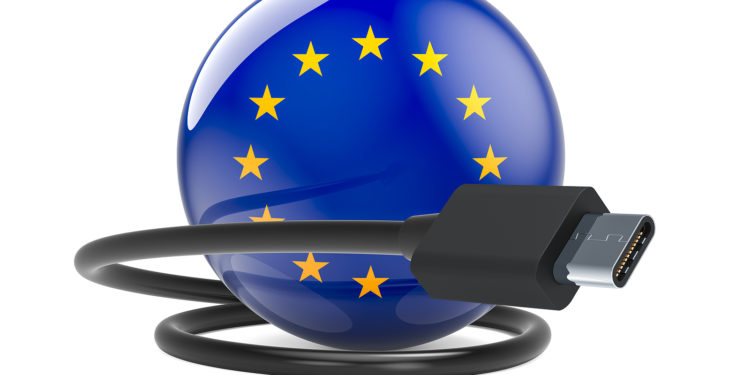The European Union has given its final approval to the Common Charger Directive, which aims to force Apple and other electronics manufacturers to use USB-C by 2024.
The EU's long-discussed plan to introduce a common charger for small electronics and notebook manufacturers has cleared its last major hurdle. On Monday, EU Council ministers finally adopted the Common Chargers Directive. The plan envisages making USB-C ports mandatory on devices so that a single plug type can be used on a charger for multiple devices. This is intended to improve consumer convenience and significantly reduce electronic waste. By 2024, mobile phones, tablets and e-readers, cameras, game consoles, headphones, wireless mice and keyboards, and portable navigation systems will all have to be charged via USB-C. 40 months after the directive comes into force, all notebooks will also be covered by the regulations.
Jozef Sikela: “Finding the right charger can be annoying”
Under the directive, consumers can choose whether to buy new devices with or without a charger. Four years after it comes into force, the European Commission will decide whether to make unbundling of chargers mandatory. Once approved, the act must be signed by the President of the European Parliament and the President of the Council and then published in the Official Journal of the European Union. 20 days later, the rules will come into force and apply to manufacturers 24 months later. Jozef Sikela, Minister for Industry and Trade, expressed as follows:
We all have at least three cell phone chargers at home. Finding the right charger, whether at home or at work, can be quite a hassle. In addition, these chargers generate 11,000 tons of electronic waste every year. Having a charger that fits multiple devices saves money and time and also helps us reduce electronic waste.
After USB-C: Wireless charging is next in the EU
Apple has not yet commented publicly on the move following the EU regulation's finalization. But the company has previously spoken out against the change. In 2020, Apple stressed that a regulation forcing plugs to conform would "stifle innovation rather than encourage it and would harm consumers in Europe and the economy as a whole." The company has been slowly converting all of its hardware to USB-C, with the iPhone being the last device to make the transition. However, the Commission's work is not yet complete, as it will still look at harmonizing wireless charging technologies for devices. This change could affect MagSafe, Apple's modified form of the popular Qi wireless charging standard. (Photo by natatravel / Bigstockphoto)





